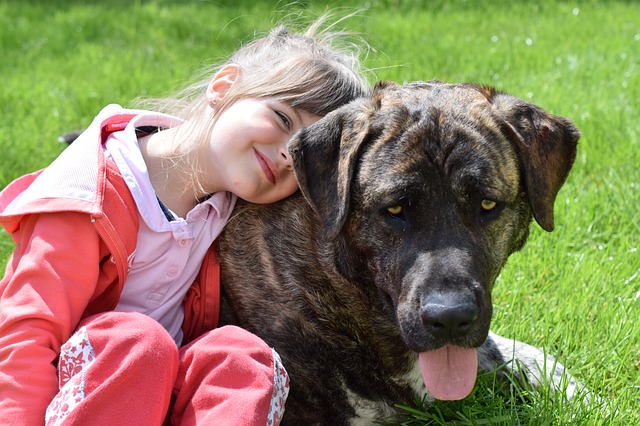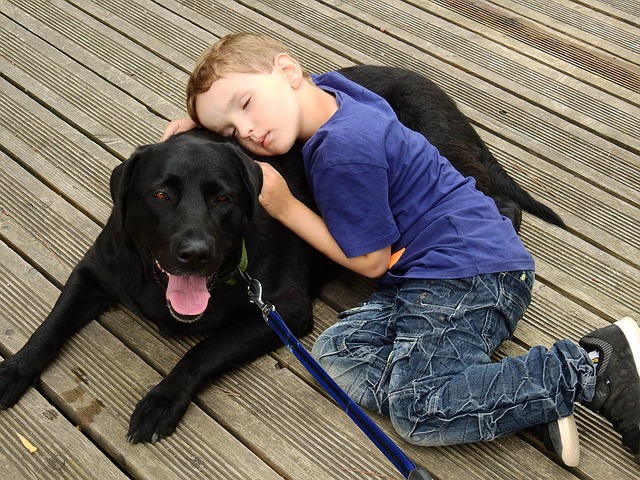Autism statistics are on the rise; one in sixty-eight U.S. children are diagnosed, a thirty percent increase from two years ago. Degrees of this condition vary from mild to severe, yet most autistic children have trouble connecting socially. Research out of the University of California, Los Angeles and the University of Missouri show that families who live with an autistic child and a dog report marked improvement in social development.

Emotional
A dog’s love and affection is unconditional, non-judgmental, loyal and provides a relationship on the child’s terms. Since a child with autism may have trouble connecting the dots when it comes to facial expressions, vocal infliction of others, the dog may be easier to understand and relate to. The dog may also serve as a buffer with other kids. An autistic child may use their love and caring for their dog as a way to interact with their peers.
Parents have reported that the children have increased their level of responsibility. By caring for the dog, an autistic child may bring an improved awareness of the world around them.

Physical
In addition to the emotional benefits there are a myriad of physical benefits as well. One of the benefits is increased motor function such as the child having to adjust their gait to keep up or stay with the dog while out walking. Other motor skills would be opening containers to feed the dog or picking up and throwing a ball for a game of fetch.
The act of petting reduces stress levels. Autistic children who have trouble verbalizing their needs discover new and unique ways to communicate with their dog, easing the frustration of not being understood.

Involvement
When a family decides to bring a dog into their lives, it helps to involve the child in choosing the dog. If the child has an issue with loud noises, an excessive barker wouldn’t be a good choice. The child who has touch, sensory issues would rather pet a dog with a soft coat that one with a wiry coat. A calm, submissive dog would be an ideal choice for a child who becomes easily overwhelmed by too much stimuli.
Sixty-seven percent of the families who participated in the study out of the University of Missouri reside with a dog; ninety-one percent of those parents have stated there is a strong bond between their autistic child and the family dog. It may not be an ideal situation for every family who lives with and loves an autistic child, yet the research shows what dog lovers the world over have already known. Dogs are intuitive, loyal and true. They bring a special joy into a human’s life and leave a paw print on the heart of anyone who lives with them.
